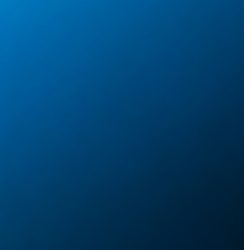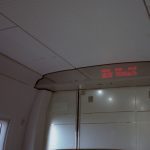MARISKA BAARS / RUTGER ZUYDERVELT – EAU 
Mariska Baars and Rutger Zuydervelt (a.k.a. Machinefabriek) have been working together for many years, in different projects. Piiptsjilling comes to mind first, along with many other occasional projects featuring the Kleefstra Brothers, such as Fean, Seeljocht, and numerous other collaborations with various artist such as Drifts, Clay, Gris Gris and Zeeg.
This is not the first collaborative album from the duo (Drawn, Thole) – but it may very well be their most ‘experimental’.
Eau means ‘water’: the 30-minute composition paints a fractal aural picture of tiny waves moving on their own but also building larger waves together, using short fragments of Mariska‘s singing and rearranging them, or stacking them onto waves of musical tones, buzzes and crackles and lingering guitar sounds. ‘Like a babbling sonic stream of fractured audio debris. Or the equivalent of sunlight dancing on the ripples of a lake’s surface.’
Mariska does not only contribute her singing, by the way: she also plays guitar, kalimba and added field recordings.
The duos advise is to play this album on repeat, and ‘let the sounds hang in the room – let them co-exist with any other sound that’s there. Open a window if you wish’.
The structure and composition are quite unusual, ‘it functions more like an atmosphere that fills the space’. Mariska Baars voice is cut up to vocal punctuations that drift through the air in a way reminding me of Akira Rabelais’ reconstructed tape fragments on his Spellewauerynsherde masterpiece. The lo-fi stripped-down folk songs of her Soccer Committee releases (2005-2006) are long left behind.
‘Never look back’ seems to be the motto that connects these two artists: always exploring new territories, experimenting beyond expectations (even though there’s the risk that that in itself becomes the expectation).
As a side note (just a historic detail for musical archaeologists), I cannot help mentioning the Soccer Machine mix I created (way back in 2007!!) combining (early) Machinefabriek music with the songs of Soccer Committee. There’s no ‘real’ collaborative track in there, but I clearly felt that the stripped-down, emotional songs matched very well with the abstract experimental electronics.
Opposites attract, I guess: the two were always meant to work together. I think the mix is still worth listening – but it’s nothing like the sound of Eau.
They’ve come a long way since then.
CELER – XIÈXIE 
The cover image immediately brought back memories of my own trip to China in 2016. I think I made an almost identical picture in that high-speed train. And, like Will Long, we also bought a dictionary and phrasebook but never got beyond that word for ‘thank you’: Xièxie (谢谢).
Celer‘s XièXie is a double album (2LP/2CD) documenting his impressions from travelling in China in June 2017. Some of the tracks have a date and are field recordings with descriptive titles like Birds inside the high halls of Hangzhou, Shanghai Red Line, From the doorway of a beef noodle shop, or, indeed Maglev at 303km/h. Other tracks are Celer‘s distinctive loops, unhurried and intensely relaxing. There are eleven different tracks but they are mixed into two uninterrupted dreamlike journeys (the download contains two extra tracks with uncut versions of the album).
“Everything moves faster than we can control. Days are just flashes, moments are mixed
up but burned on film, and all of the places and times are out of order. […] Sometimes everything goes faster than you can control and you can’t stop, much less understand where you are.”
There’s a contradiction in the cover image of a train moving at 303 km/h and the slow music it contains. But looking out from a train at that speed the world seems to be moving slower, not faster.
XièXie is a recommended soundtrack for everyone that feels life is moving too fast.





